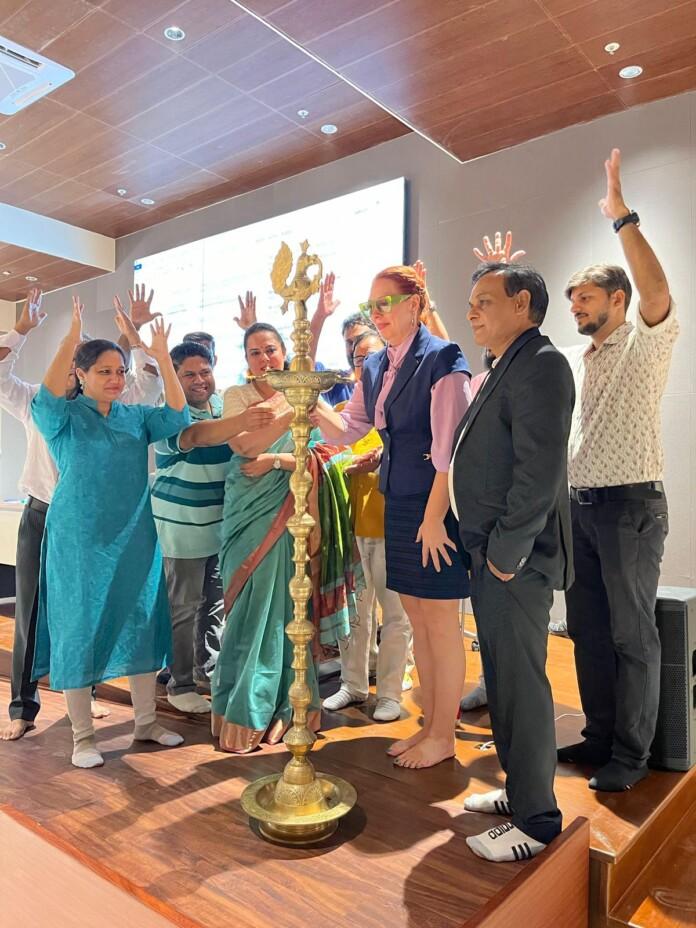Porvorim: The Ali Yavar Jung National Institute for Speech and Hearing Disabilities (Divyangjani AYJNISHD(D)), in collaboration with ISLIA and the Directorate of Account, is currently hosting a Two Days RCI-Recognized International Continuing Rehabilitation Education (CRE) on “Global Echoes: Advancing Sign Language Interpreting in Deaf Education.”
The inaugural session saw the esteemed presence of dignitaries, including the Social Welfare Minister of Goa, Subhash Phal Dessai, Goa State Commissioner for Persons with Disabilities, Guruprasad Pawaskar, President of ISLIA, Monica Punjabi, General Secretary of ISLIA, Kinjal Shah, Secretary of the Goa State Commission for Persons with Disabilities, Taha Haaziq, Vice President of ISLIA and President of AJFD, Sunil Sahasrabudhe, Incharge of IDC & ESA (Mass Media) AYINISHD(D) & JS ISLIA, Mathew Martin and the Director (OFFG) of AYINISHD(D), Dr. Raju Arakh.
Social Welfare Minister Subhash Phal Dessai emphasized the seminar’s core purpose of ensuring accessibility, addressing challenges for individuals with disabilities. Acknowledging the crucial role of participants, he expressed gratitude for their cooperation, highlighting the need to work collectively in advancing sign language interpretation in global deaf education.
President of ISLIA, Monica Punjabi, emphasized the International Purple Festival’s commitment to accessibility by employing 40 sign language interpreters. These interpreters play a vital role in making all aspects of the festival, from panel discussions to exhibitions, bird walks, and swimming, accessible for the deaf community. Monica Punjabi underscored the prestigious nature of sign language interpretation, crucial for providing language access to deaf individuals worldwide.
The workshop delved into critical themes, including the significance of early intervention within the context of the Sustainable Development Goals (SDGs). Participants explored the unique challenges and opportunities surrounding accessibility, emphasizing the India perspective on mental health and well-being for sign language interpreters. Sessions also offered valuable insights into the intersection of bilingualism, drawing from personal experiences.
The comprehensive discussions underscored the importance of aligning practices with SDGs and highlighted the crucial role early intervention plays in fostering a supportive environment for sign language interpreters’ mental health and overall well-being.



